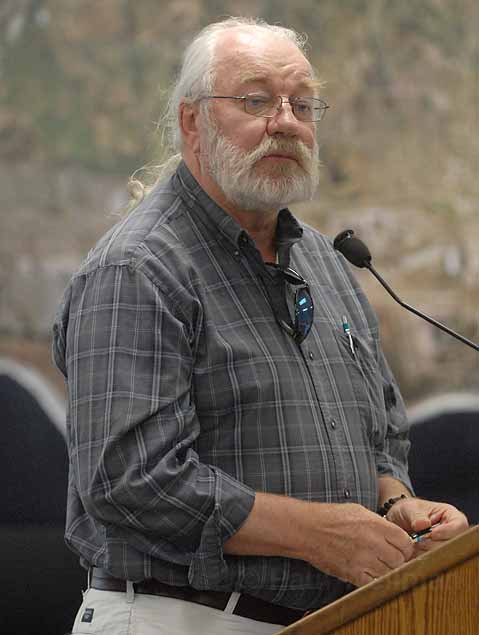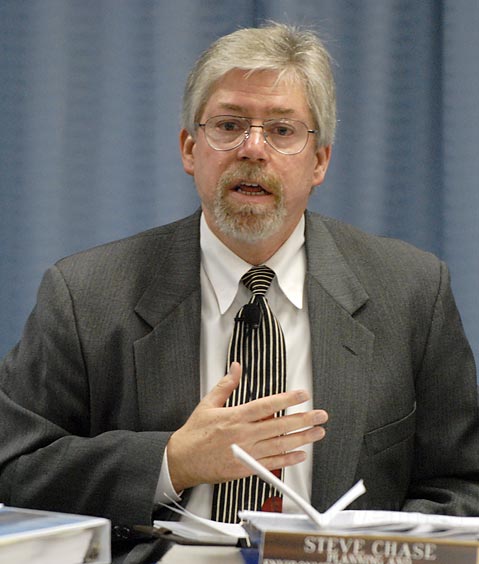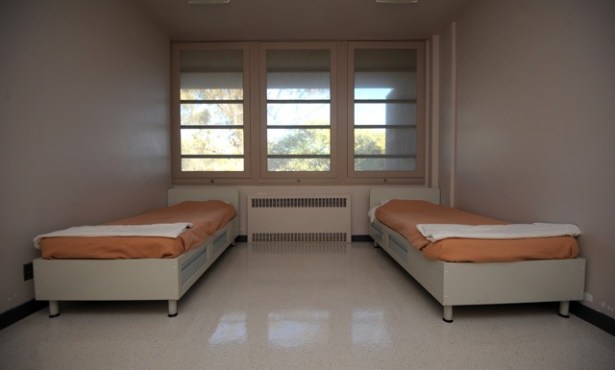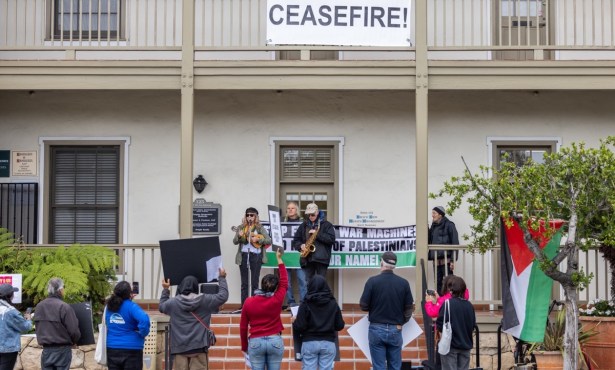Novel Mobile Home Park Deal Gets Goleta Planning Commish Okay
Rent for Land Swap
Since the 1940s, residents of Goleta’s 150-unit Rancho Mobile Home Park have enjoyed some of the most affordable housing in Santa Barbara County, thanks in no small part to state-imposed rent controls. However, 2002 marked the beginning of a series of litigation when park owner Daniel Guggenheim contested the newly formed City of Goleta’s continuation of a 23-year-old county rent-control ordinance, and began his attempt to convert the rental mobile home lots into sellable condominium parcels. Although a contentious atmosphere has existed since then, a unanimous action by the Goleta Planning Commission Monday to recommend a development agreement between Guggenheim and the park’s tenants heralded what could be a new era of cooperation, and certainly an approach to mobile home park regulation that has never been attempted. “I can’t take any risk that only state law will protect tenants,” said Commissioner Jonny Wallis, known as a proponent of park residents during her tenure as a Goleta City Council member.

State law aims to preempt local authority regarding mobile home parks, said City Attorney Tim Giles, to protect mobile home owners from the effects of rapidly increasing rent. Several park tenants who spoke at Monday’s public hearing bemoaned the fact that if there are no controls in place, they may not be able to afford the combined payments of the coach, the lot, and homeowner’s fees, which are not typically included in the base rent, which varies between $300 and $600 per month, depending on a given lot or trailer. James Webster, who said he’s been in the business of selling mobile homes in Goleta for 40 years, pointed out that unlike regular home loans, mobile home loans carry high interest rates and relatively short terms, making the payments expensive. Many of the residents who spoke said they were concerned they’d end up owning a mobile home and have nowhere to put it. “Conversion is another ploy by mobile home park owners to overturn rent control,” said Elizabeth Mason, president of the Santa Barbara West Park Association, adding that in extreme cases, tenants have ended up on the streets.
Goleta Planning and Environmental Services Director Steve Chase said that he saw the conversion plan as an innovative way to improve protection and options for mobile home park tenants. “This is taking rent control and exchanging it for another type of rent control,” he said, continuing that the process underway now aims to make sure it’s an adequate replacement for the old method. “This isn’t something that’s been around for 20 or 30 years. This is all recent.”

As part of an effort by Goleta to ensure the continuation of what it has supported as a bastion of affordable housing, a development agreement between Guggenheim and the city would include a two-year period of first refusal for all park tenants. Within that time, residents would have the option to purchase their lot or continue renting, with an $800 cap placed upon rents within a seven-year period. Currently, the plan includes a provision allowing low- and moderate-income residents to receive a 15 percent discount off the appraised price of the lot, although values have yet to be determined. Guggenheim would then offer to finance 15 percent of the value of the lot at five percent over 20 years, and qualified tenants would also have the option of procuring a state loan at 3 percent over 30 years. The value of each lot is to be determined by an appraiser, selected by the city from a pool of appraisers supplied by Guggenheim. If the development agreement is adopted, Guggenheim will be required to retire the five lawsuits he now has pending against Goleta.
Initially, the Santa Barbara County Fire Department looked at the conversion as an opportunity to examine fire safety features on the property, and called for updated fire hydrants and a turnaround to accommodate fire engines. “It is not a new park, and financially, [fire updates are] very difficult without substantial rent increases,” said Richard Close, one of the attorneys representing Guggenheim. Captain Martin Johnson, speaking for County Fire, said that the issue is being vetted by both Guggenheim’s legal team and the County Board of Supervisors regarding fire update requirements, and will undergo further review.
Members of the Planning Commission were clear that their decision was an advisory step to aid the City Council in its decision-making process, and several other issues were brought up that they said needed to be examined in more detail. Chief among these were production of a tentative map of the condominium lots by Guggenheim, as well as a development plan. Also, a question was raised about whether or not a Coastal Development Permit is required. Two thirds of Rancho Mobile Home Park lies within the coastal zone, and falls under the jurisdiction of the California Coastal Commission for final project approval. However, because the City of Goleta does not have a certified Local Coastal Plan to date, it cannot issue a Coastal Development Permit.



